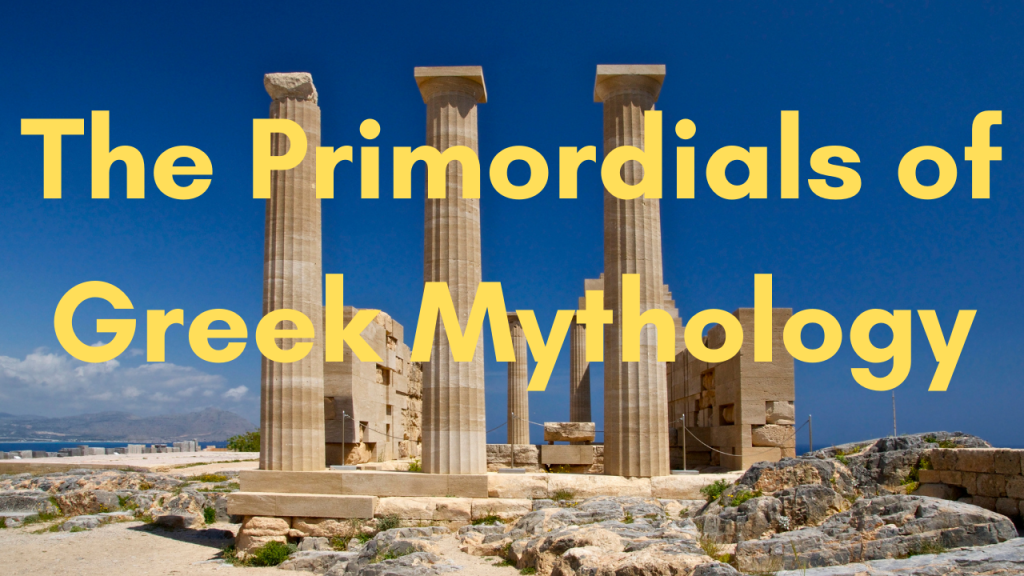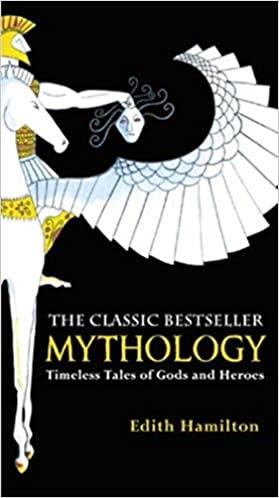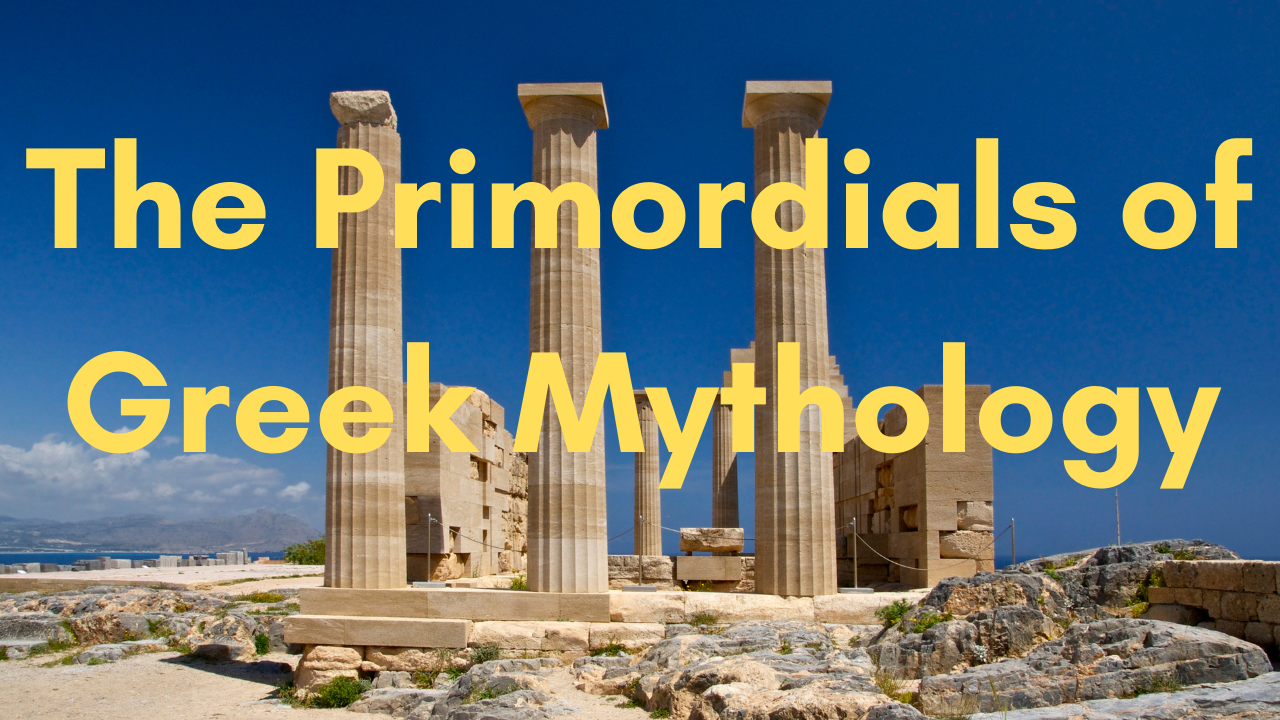Who were the Primordials of Ancient Greek Mythology?
The Primordial were a set of divinities usually defined as, as the name suggest, the first ones, the primes of the plane of existence. These Primordials are usually the founder gods, the first ones of certain races or aspects, or represent universal truths about humanity and the world they live in. These Primordials include: Chaos, Gaia, Nyx, Erebus, Tartarus, Eros, Chronos, Ananke, Eurynome and Uranus each one being the personification of a great undeniable truth, such as love or time, or a true and principal aspect of nature, such as darkness and the earth.

When we think of ancient Greece, one usually thinks of the great and famously divine beings like Poseidon or Zeus and his exploits. We think of the great wars that shaped the universe. We think of Ares and his thirst for battle, Athena and the founding of Athens, or you think of a hero or two perhaps Theseus and Heracles and their labors.
But very rarely do we see the origins of Greek mythology – or rather, what did they believe happened in the very beginning? How was the world build or born from their perspective?
Usually, writers would gloss over these gray and messy areas and simply say that everything sprung from chaos and let’s go from there. I mean who could blame them this particular part of Greek myth is pretty grey and messy. It is filled with contradictions, several different accounts, and no real unified agreement about what happened.
Chaos, the first
So, what was chaos? Chaos, as many agree is a primordial soup. Everything and nothing coherent was in it. All matter and all everything was jumbled together without existing and without order, Many sources, like the two most famous of modern Greek mythology writers, Edith Hamilton and her book Mythology Timeless Tales of Gods and Heroes, and Thomas Bulfinch in his Mythology, do simply describe the beginning as the primordial soup.
In my opinion, Hamilton put it best saying, “first there was chaos, the vast immeasurable abyss. Outrageous as a sea, dark, wasteful, and wild” – this quote comes in chapter 3, which means that she decided to introduce the most famous figures, of Greek myth, understandably so, before going to details of how it all got started.
Zeus and these other famous Olympians are actually, arguably the third generation of deities to rule over the heavens.
Greek writers like – Ovid describes chaos as a rude mass of nothingness that was then divided into four elements, queue The Last Airbender music there, though he refers to these four as earth, sea, heaven, and Tartarus. I still feel like the Atla remix suites it well.
Another Greek writer, Hesiod, which will be used the most on this channel though Homer and Plutarch will make several appearances as well, wrote in his Theogony in the section of the cosmogony or tale of the beginnings of time:
“At the first chaos came to be, but next wide-bosomed earth… and dim Tartarus in the depth… and Eros, fairest among the deathless ones… from Chaos came forth Erebus and black night: but of night were born Aether and Day… and Earth first bore starry heaven equal to herself, to cover her on every side, and to be an ever-sure abiding place for the blessed gods.”
Now there is a lot to unpack here. First off notice how he mentioned the gods but not all of them are called by name instead of by their element or what they represent. Gaia and the others essentially were pieced together from Chaos, they either built themselves into existence or to be more scientific about it, gravity eventually pushed them together.

The Great Primordial Five
The five that emerged from the soup of chaos were: Gaia, Tartarus, Eros, Erebus, and Nyx, though she was referred to as black night. Out of night then came the Aether and Hemera, or day. The last line talks about Gaia’s first child or the first creation she bore… Starry Heaven which is equal to herself. This is Uranus who would become her consort and the father of the Titans.
Each of these Primordials or deathless ones represent either a plane of existence like earth, sky or darkness or an essential unmovable piece of humanity, like love,
Tartarus is the deepest depths of the underworld, a plane or void where not even gods can escape from, it is where the worst of the worst in Greek stories are punished, such as Ixion, Tantalus and Sisyphus, to name a few.
Eros is the incarnation of love, his Roman equivalent being the more famous Cupid. Some myths do put him as a child of Aphrodite, a being that while she is put at the same level of the Olympians had a completely unique way of coming into the world, but she deserves her own video.
Next is Erebus or the infinite void and blackness. He is the personification of darkness, if the Lovecraftian elder gods or great old ones ever have a home in Greek myth I’d dare say it may be in the plane of Erebus. And Nyx is the personification of the night. She and her consort Erebus are most famous for the children they had together. Some of these include, Hypnos or sleep, Thanatos or death, the Hesperides which eventually guard the tree of the golden apples, the Moirai or the three Fates, Charon the ferryman of the underworld, Rhamnusia also called Nemesis which comes from the Greek word meaning, “to give what is due”, Geras the god of old age, and the river Styx, the major river of the underworld. Some of these beings play major roles in stories and some of them are part of a group of god called the Chthonic Deities or earth gods.
Next is Aether and Hemera who were also born from the union between Erebus and Nyx. The Aether was the upper sky, the air that the gods breathed up above. Yeah, we mortals apparently breath a different kind of air. Hemera was the day and according to other traditions they may have been born differently. Ovid puts them as being born directly from chaos, while other traditions like the Orphic traditions we see them as children of Chronos and Ananke, two other primordial beings that represent time and necessity, respectively. Chronos is spelled differently than the titan, his name is spelled with come with a c h and he is portrayed as an old, bearded man, father time while Ananke is the personification of inevitability and compulsion, essentially destiny.
And last but certainly not least is Gaia or as the romans called her Terra Mater, she was the mother of all other things. Basically, all the major players: Heroes gods, and mortal men of Greek myth can in one way, or another trace their lineage back to Gaia. She not only bore Uranus, who will be expanded on when we discuss his children, The Titans, but she also gave birth to the primordial ocean, Pontus. Pontus was born directly from Gaia, and, while we are on the topic of the ocean, Thalassa is another primordial being called the spirit of the sea. Many scholars agree that both beings, Pontus and Thalassa may have pre-Greek origins coming from cultures, or traditions that predate what we consider ancient Greece.
The Ourea were born of Gaia as well, alongside Pontus. While Pontus was the sea, the Ourea were the mountains of the earth, the hills that nymphs would eventually call home. Their roman name is Montes.
Now, there is another tradition from ancient Greece that explains the origins of the world. I go into detail in another video, link up here somewhere, but this tradition talks about a snake and a dancing goddess called Eurynome. She and her consort Orphion come from the Orphic traditions. Both of them being Primordials in their own way and in these traditions, we also see Phanes who was the primordial being of procreation.

Other Primordials from Other Traditions
Other notable Primordials are Achlys and Aion
Achlys who represents a mist of death, was said to be the precursor to chaos, essentially some traditions see this deity as a nothingness before something happened.
Aion or Eon, who personified and represents boundless time, is a time deity that is in a way the opposite of Chronos who represents structured time. Think of Chronos as the structure of time which we organize ourselves, years, months, days, hours, our clocks (btw this is where the word chronometer comes from), and Aion as the concept of time that can never be measured or reached.
There are other primordial deities but many of them barely have any mention in the myths, Physis, is nature itself, from where we derive the words like Physics and Philosophy. Hydros is of the primordial waters, Himeros represents tension in romance, he is part of the winged boy band that accompanies Aphrodite along with cupid, Pothos, and Anteros. Then there is Moros which means doom, and the Nesoi which are deities of the islands of the world.
These elder deities are manifestations of the ages, they are the first, the primes. Each of them represents an aspect of nature, time or humanity that is undeniable, they are the Primordials

I hope this blog was helpful.
The Primordials are fascinating because for the Greeks these are literally the foundations of the universe, they are the building blocks of everything we have and create from. They are the wild untamed seas, mountains, the unreachable sky beyond humanity, they are time and darkness and eternity. The Primordials also represent this Greek idea of building on other traditions. Many of them, like I mentioned before, come from what could be earlier cultures and people that where either neighbors of or eventually became The Greeks.
Thank you so much for reading, You can also listen or watch my Youtube video. I am working on building a Greek myth playlist and while I wanted to focus on shorter videos I felt that many of these beings have so little information on them that I couldn’t possible make a video on each one.
In the comments and please tell me, which is your favorite of Primordials? I know someone has to mentioned Nyx somewhere, I read the House of Night series loved her there. I feel like, many writers can take advantage of either the ambiguity or lack of information of these beings and expand or create new myths and awesome stories on them.
If you can, take a look at my Tiktok channel where I do top 5 facts on literature, art, history, myths, and special birthdays, and check out my bookish Instagram.
Have a wonderful day and see you next time where we will discuss, you guessed it, the children of Gaia and the Golden age of the Titans. Peace!
